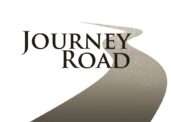by Priscilla Lack
Many of us are seeking more discernment in our lives. For a number of us, our seeking may cause us to reminisce about the times we’ve had the wool pulled over our eyes.
We might remember how our slip-ups didn’t come from something obvious, but they came by inches at a time. Each inch gained access to our heart as we were inattentive to red flags. Perhaps our oversight came as we trusted the wrong people, or maybe we embraced an unhealthy way of coping that became destructive to us.
As we learn our lessons and heal from them; the realization usually comes that we can all miss it, even when our heart is in the right place. Things aren’t always as they seem, and now our prayers may include more requests for increased discernment.
How then, do we discern? How can we know when we’ve been tricked? Even the Bible says that spirits of delusion are sent to the earth, especially during the end of days.
A Hearing Heart That Listens
In 1 Kings 3:5, God met Solomon in a dream. He presented a question to Solomon, “Ask what you wish Me to give you.” Solomon responded by asking for the ability to discern between good and evil so that he could govern God’s people effectively.
If we look at the Hebrew word for what Solomon asked for, it sheds more light on this biblical account. The word used for discernment in this passage is shama. While understanding and discernment are good translations of this word, shama has more to do with hearing and listening in order to discern. It could accurately be said that Solomon is asking the Lord for a hearing heart that listens. [1]
In our busy world today, having a hearing heart that listens can be a challenge. Fortunately, like Solomon, we can ask for such a blessing from our Abba Father. To slow down and practice listening from our heart may be uncomfortable at first, but learning to listen this way is a major key to becoming more discerning.
First Steps
The first steps of developing a hearing heart that listens in the spiritual is by doing it in the natural. This happens when we listen to people and care about what they are sharing with us. We listen to their heart, and we listen to them from our heart. Sometimes, this type of listening means we have to hold back on all the stuff we want to say. The spiritual is not first, but the natural; then the spiritual. (1 Corinthians 15:46)
When we learn to listen in the natural, we start to cultivate this ability to tune-in to the spiritual. We start to see how God’s Word comes alive to us in meaningful ways, and the Holy Spirit leads us into His truth. While there are true gifts of discernment, the reality is that we usually have to cultivate discernment through experience (yes, that includes our mistakes too) and a listening heart. The two-go hand-in-hand. If someone says they have the spiritual gift of discernment, observe how they listen.
Consider how Solomon listened to two prostitutes who lived in the same house. The two ladies were fighting over which one of them was the true mother of a child. Both of them had recently had babies, but one of them lost her child. Her baby had died. As Solomon discerned which mother was the true mother of the remaining child in question, he listened to each mother and their heart – from his own heart. He considered what they were saying, and then suggested the child be split in two by the sword so that the real mother would step forward. He already knew who that was because God granted him the ability to hear from his heart and discern. (1 Kings 3:16-28)
Our discernment – whether we are discerning rightly, wrongly, or not at all – will affect every decision we make. The Lord knows we need His discernment to walk in our times today. He is happy to teach His children how to develop this gift and necessary skill.
We will probably make some mistakes as we learn to walk in more discernment, but we have a gracious heavenly Father who loves us. His love heals and develops ordinary people to do the impossible for His kingdom.
End Notes:
- Adapted from Travels of Healing – Finding Stability in a World Gone Crazy; pp 158-160; Priscilla Lack
© 2025; Priscilla Lack, all rights reserved; photo courtesy of Unsplash.com


 Journey Road LLC
Journey Road LLC